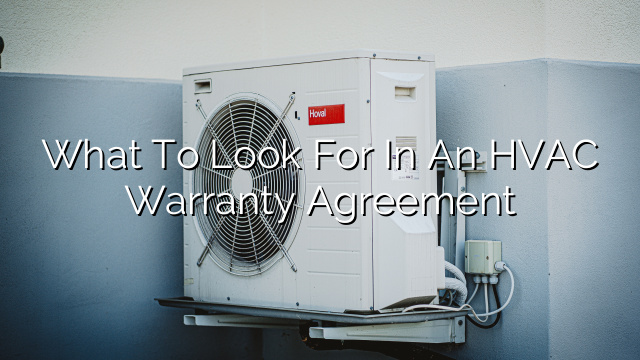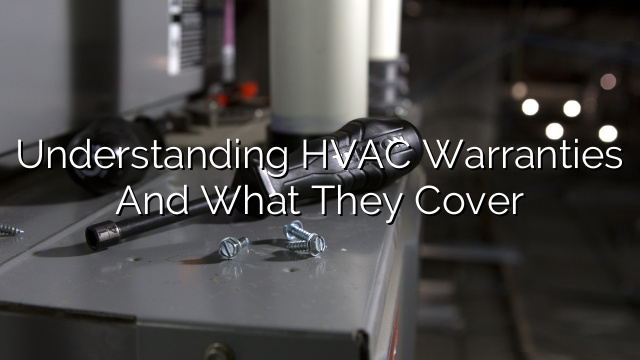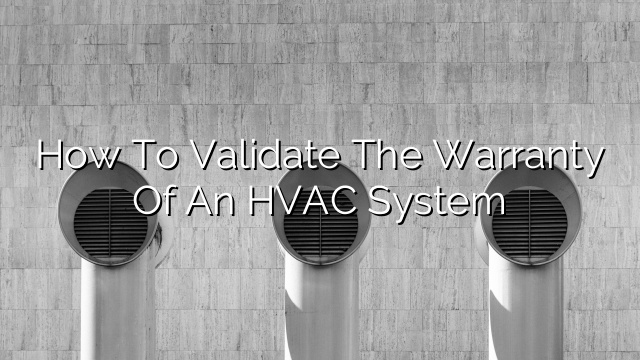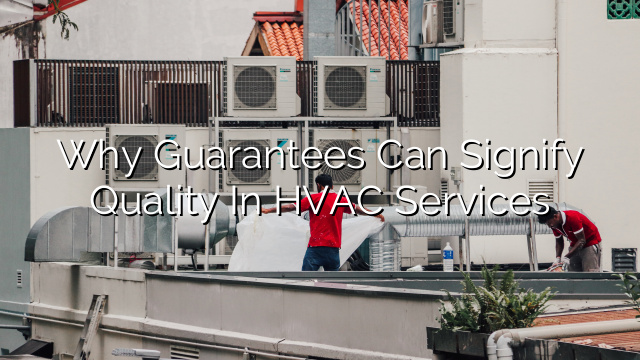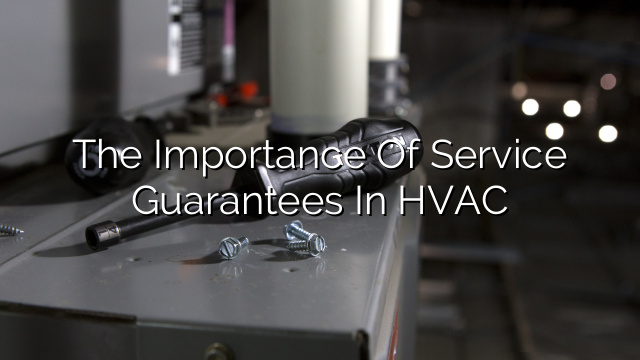Understanding HVAC Warranties and Service Guarantees
Maintaining a comfortable home environment throughout the seasons is largely dependent on a reliable Heating, Ventilation, and Air Conditioning (HVAC) system. However, even the best systems occasionally have issues. That’s where HVAC warranties and service guarantees come in, providing homeowners with peace of mind and protection against unexpected problems. Knowing the ins and outs of these agreements can save you time, money, and stress.
What is an HVAC Warranty?
An HVAC warranty is a commitment from the manufacturer promising to repair or replace components that fail within a specific period due to manufacturing defects or other covered issues. Warranties ensure that homeowners are not financially burdened should their system malfunction under certain conditions.
Types of HVAC Warranties
- Manufacturer’s Warranty: This warranty, typically included with the purchase of an HVAC unit, covers parts that may fail due to defects or faulty workmanship.
- Extended Warranty: Purchased additionally, extended warranties offer longer coverage. They might cover parts, labor, or both after the original warranty expires.
- Labor Warranty: Some HVAC installers offer their own warranties on labor, which can save costs if a repair is needed due to installation issues.
Importance of Registration
Many manufacturers require homeowners to register their HVAC system to activate the warranty. This process is typically done online and must be completed within a certain timeframe after installation. Failing to register can result in a shortened warranty period or even void coverage altogether.
Understanding Service Guarantees
Service guarantees are promises from HVAC service providers (installers or technicians) to uphold a certain level of quality in their work. If the service provided fails to meet the agreed-upon standards, the company pledges to make it right with the customer, often at no additional charge.
Maximizing Your HVAC Warranty and Service Guarantee
Read the Fine Print
Thoroughly understand what is and isn’t covered under your warranty. Pay particular attention to exclusions, the warranty period, transferability, and the process for claims. Knowing these details upfront can prevent surprises if your system needs service.
Maintain Your HVAC System
Keeping your HVAC system well-maintained ensures it runs efficiently and often extends the life of your warranty. Most warranties require regular, documented maintenance by a professional as part of their terms. Neglecting routine care could void your warranty.
Professional Installation and Repairs
Ensure that a certified professional installs your HVAC system. Using unauthorized or unqualified individuals for installation or repair can void your warranty. Always keep records of any service performed as well.
Consider a Maintenance Agreement
Many HVAC companies offer maintenance agreements that schedule regular upkeep for your system. These agreements often come with perks, such as priority service and discounts on parts and labor, which complement your existing warranty.
Avoiding Common Pitfalls
Ignoring the Warranty Terms
Familiarize yourself with the duration of the warranty, the start date, and what actions or inactions might void it. Not adhering to the warranty terms can lead to costly repairs that would have been covered otherwise.
Using Aftermarket Parts
Using non-original or aftermarket parts on your HVAC system can sometimes void your warranty. Always check your warranty’s terms before using replacement parts that aren’t approved by the manufacturer.
Forgetting to Transfer the Warranty
If you sell your home, remember to check if your HVAC warranty is transferable. Some warranties allow for transfer to a new owner, which can be a selling point for your property and provide assurance to the buyer.
Key Insights for Homeowners
Warranty Length Isn’t Everything
A longer warranty may seem more appealing, but comprehending what’s covered and the credibility of the company backing the warranty is just as important.
Cost-Benefit Analysis of Extended Warranties
Extended warranties can offer peace of mind, but they require a cost-benefit analysis. Sometimes the likelihood of needing repairs, outside of what’s covered by the standard warranty, may be relatively low. Assess your financial comfort with potential risks before purchasing extended coverage.
Building a Relationship with a Trusted HVAC Provider
A reputable HVAC provider can offer valuable advice on warranties, perform qualified installations and repairs, and deliver maintenance services which keep your system in top shape while adhering to warranty requirements.
FAQs on HVAC Warranties and Service Guarantees
What typically voids an HVAC warranty?
- Improper installation
- Lack of maintenance
- Unauthorized repairs
- Use of aftermarket parts
Is it worth it to purchase an extended warranty?
Purchasing an extended warranty depends on individual preferences, risk tolerance, and the reliability of the HVAC unit. Consider factors such as the cost of the warranty versus potential repair costs, and the track record of the unit you own.
Can I transfer my HVAC warranty if I sell my house?
Many HVAC warranties are transferable, but this is not universal. Check your warranty’s specific terms for transferability and any conditions that must be met, such as notifying the manufacturer within a certain timeframe.
Should I register my HVAC system, and what if I didn’t?
Yes, you should register your HVAC system as it may extend the warranty period and is sometimes required. If you did not register, you might still be covered under a shorter default warranty period. Check with the manufacturer for details.
Having a firm grasp of your HVAC warranty and service guarantee is a major step toward safeguarding your home’s comfort systems and your wallet. A well-informed homeowner can navigate HVAC maintenance and repairs confidently, ensuring that their indoor climate control contributes to their peace of mind all year round.



